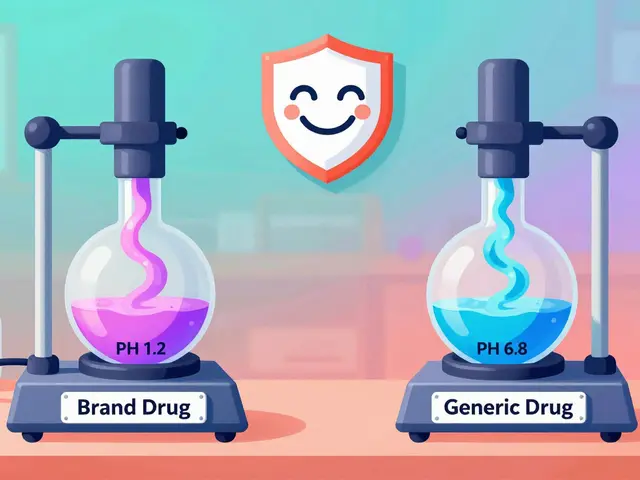Exploring Alternatives to rxconnected.com: What Are Your Options?
February 1 2025Herbal solutions: what works, what to avoid, and how to use them safely
Herbs can help with sleep, digestion, mood, fertility, and more. But they’re not magic pills. The difference between benefit and harm is often dosage, quality, and how the herb interacts with your meds. This guide gives clear, practical steps so you can use herbal solutions with more confidence.
How to pick the right herb
Start with a clear goal. Are you trying to support fertility, ease joint pain, or improve memory? Different plants target different issues. For fertility, look into vitex or myo-inositol; for cognitive support, galantamine (found in some pieces on our site) is discussed as a prescription option, not an over-the-counter herb. Read one or two reliable sources about the herb’s evidence — peer-reviewed reviews or trusted health sites. Avoid hype from social media posts that promise quick fixes.
Check the form. Teas, tinctures, and standardized extracts deliver different strengths. If you need a steady dose, a standardized extract with a clear mg amount is usually better than a vague “herbal blend.” For things like Amazonian herbs, read about traditional use and modern studies — some have real data backing them, others don’t.
Safety, interactions, and dosing
Always ask: do I take any prescription meds? Herbs can change how drugs work. St. John’s wort lowers levels of many medicines. Some herbs affect blood sugar, blood pressure, or blood clotting. If you’re pregnant, breastfeeding, have liver disease, or take blood thinners, talk to your clinician first.
Start low and go slow. Try the lowest recommended dose for a few weeks and watch for side effects. If nothing happens after a reasonable period, reassess. Keep a short log: dose, time, effects. That helps you and your provider make smart choices.
Look for quality markers. Prefer brands with third-party testing (USP, NSF, or ConsumerLab). Check the label for full plant name, part used (root, leaf, bark), and concentration. Avoid products that list proprietary blends without amounts — they hide how much active ingredient you’re getting.
Be skeptical of broad claims like “cures disease” or “no side effects.” Real herbal solutions have limits and risks. Good articles on our site, like Top Amazonian Herbs and Top Herbal Supplements for Fertility, summarize the best evidence and point out what’s still uncertain.
Practical tips for buying and using herbs: buy from reputable stores, avoid super-cheap imports with no testing, keep products in a cool dry place, and throw away anything past its expiration. If you plan to combine herbs or use them with prescription meds, ask a pharmacist or a clinician who knows herbal interactions.
Herbs can be useful tools when chosen wisely. Use them with a plan, track effects, and stop if you notice harm. For topic-specific reads — fertility herbs, Amazonian botanicals, or herb-drug interactions — check our related posts linked on this page to learn more about each option and the evidence behind it.
 16 Jul
16 Jul
Natural Remedies for Diarrhea: Herbal Solutions for Gut Health
In my latest blog post, I delve into the world of natural remedies for treating diarrhea. I've explored various herbal solutions that are known for their positive effects on gut health. From the soothing properties of chamomile tea to the powerful healing effects of ginger, I've covered a wide range of natural remedies. I've also included some practical tips on how to prepare these remedies at home. This is a must-read for anyone looking for natural ways to tackle gut health issues and improve overall wellness.
Read More...




